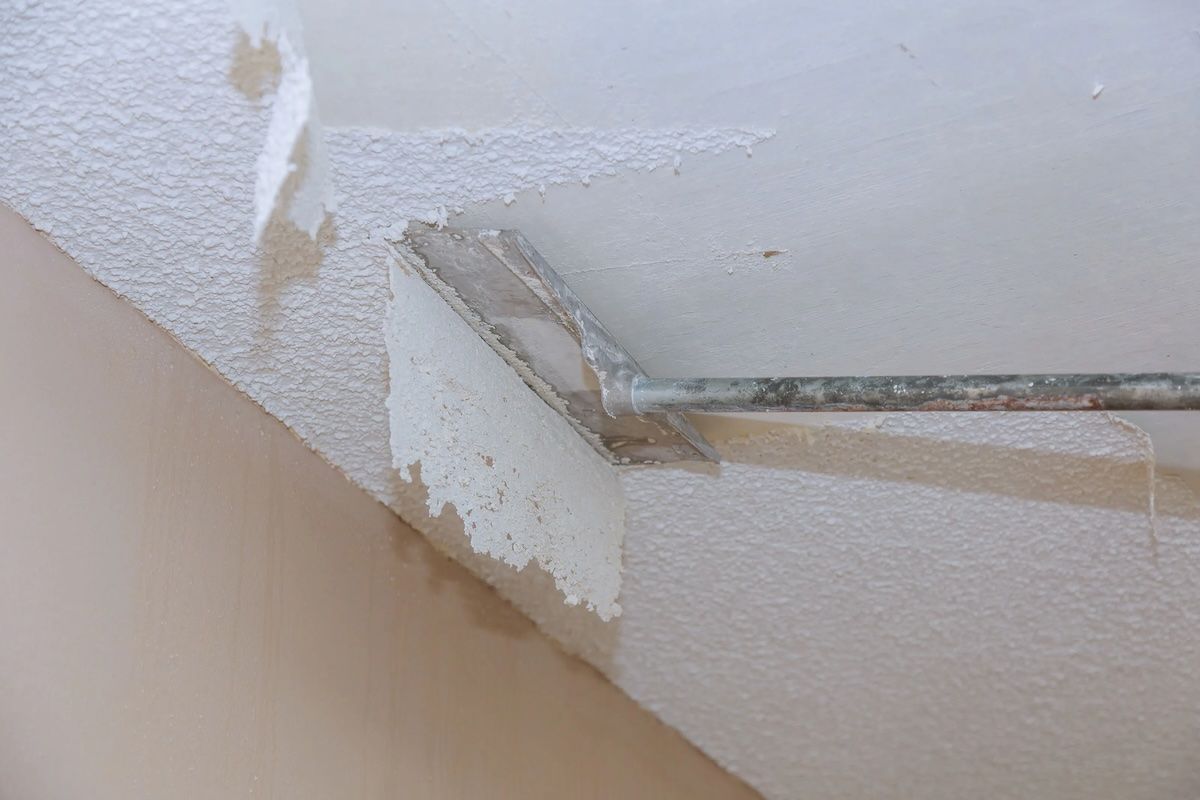- Factors that Impact the Home Selling Timeline
- The Home Selling Process Timeline
- Start Your Homework 3 Months Before Listing
- Connect with a Real Estate Agent at Least 2 Months Before Listing
- Clean, Declutter, and Take Professional Photos 3 Weeks Before Listing
- Listing Goes Live
- Offers Received & Negotiations
- Offer Accepted & Due Diligence: Up to 60 Days Post Acceptance
- Closing: 1-60 Days Post Acceptance
- Move Out: Closing Day
- Be Flexible When Selling
The Complete Home Selling Timeline: How Long Does It Take To Sell a House?
Click here to browse our Real Estate Agent Directory and contact top-rated agents in your area!
Before listing a property, most sellers don’t fully understand the sale preparation process. How long does it take to sell a house, and what is a typical home-selling timeline? Here’s a hint: it’s usually longer than you estimate, but realistically, there’s no single answer.

Factors that Impact the Home Selling Timeline
The home selling process timeline varies considerably between different markets, properties, and economic environments. While some properties may sell quickly, others may languish on the market for months or even years.
Local Market Conditions
Market conditions are entirely out of the control of buyers, sellers, or their real estate agents. In markets with high demand, with more buyers than properties available for sale, houses can sell quickly. It can often happen within days or weeks of being listed. In these markets, properties may even receive multiple offers. This drives up the sale price and creates a sense of urgency among buyers.
On the other hand, in markets with high inventory levels that exceed buyer demand, it can take considerably longer to sell a house. In these markets, properties may sit on the market for months or even years before being purchased. Sometimes the sale price may be lower than the seller had hoped for.
For example, last year Charleson, South Carolina, was one of the country’s hottest housing markets, and homes sold historically quickly. As of February 2022, the median days on market was 42; today, that figure has jumped to 80 days. As you can see, market conditions undeniably impact how long it takes to sell a property.
Property Condition
The condition of a property can also impact the timeline for selling a house. If a property is in good condition and requires no significant repairs or renovations, it often sells faster than a property that needs work. For example, if a seller has a house with outdated appliances and fixtures, they may need to update these features to attract buyers and achieve their price expectations. This investment can take time and money and typically delays the sale timeline.
Similarly, if a property has significant issues such as a leaky roof, structural damage, or mold, it may take considerably longer to sell. In these cases, sellers may need to make repairs or renovations before listing the property, which can be expensive and time-consuming. They’ll also need to disclose these issues to potential buyers, making it harder to attract interest.
The Time of the Year
You read that right, the time of year and the season you choose to sell in can impact how long it takes to sell your property. It can also impact the selling price.
For example, if you live in a cold climate, fewer buyers will be in the market during the frigid winter months. In warmer climates, houses may sell more slowly in the summer months when it’s hot outside. In some cases, sellers may choose to wait until the optimal season to list their property to maximize their chances of a quick sale at top dollar.
Your Real Estate Team
A real estate team can expedite the home selling process or hinder it. This is why it’s crucial to work with a team of experienced real estate professionals.
One of the most significant ways an agent can impact the home selling timeline is by helping you price your home correctly. Setting the right price is the most important marketing strategy and will determine how quickly your home sells and how much money you’ll make. A real estate agent will use their expertise and access to market data to help you determine the optimal price for your home. Find a trusted local with FastExpert, where you can read verified reviews and find the perfect agent to sell your property.
The Buyer’s Real Estate Team
A buyer’s real estate team is a variable that’s out of the seller’s control, but if your selling agent is experienced in your market, they’ll likely have a little insight into how well the purchaser’s team works. Most buyers will be working with an agent and a mortgage broker to complete the transaction. A mortgage’s processing and underwriting timeline can be unpredictable, especially if the buyer’s financial circumstances have changed since they received their pre-approval. This is why many sellers will prioritize offers made without finance contingencies.
The Home Selling Process Timeline
With the understanding of market conditions and the variables surrounding your property sale, let’s review the average home selling timeline.
Start Your Homework 3 Months Before Listing
If you have the time to spare, start doing your homework on your property and the local real estate market. It’s crucial to understand your property’s strengths and weaknesses, as this can help you highlight the best features of your home while also making any necessary repairs or upgrades before listing. If you want to go the extra mile, order a home inspection so you’re across any major work that might need to be done.
Completing repairs and maintenance can save you the stress of negotiations or the cost of making hasty repairs. Furthermore, these repairs can help increase the value of your home while making it more attractive to potential buyers. However, before you spend too much money, make sure you know what not to fix when selling a house and the value difference between cosmetic or functional items.
Sellers should also get an understanding of their local market conditions so they have a realistic idea of what their property is worth, what buyers are looking for, and what the competition looks like. Buyers should understand the local market can also help you determine the best time to list your home and the ideal price range to attract buyers. Ultimately, taking the time to do your homework about your property and the local real estate market can increase the chances of a successful sale and ensure that you get the best possible price for your home.

Connect with a Real Estate Agent at Least 2 Months Before Listing
It requires a lot of preparation and effort to ensure that your property stands out in any market. One of the best ways to ensure a successful home sale is by working with an experienced real estate agent at least two months before you want to list your home so they can help add value to your home sale. Once you’ve found an agent you want to work with, be prepared to sign a listing agreement.
If you are looking for a trusted agent to sell your home, start your search with FastExpert, where you can view agents ranked by recent sales and reviews.
Preparing your home for sale is a critical part of the process. You want your home to look its best when potential buyers view it. Focus on curb appeal and making your home feel as spacious as possible. Working with an agent early on will give you time to make necessary repairs, declutter and stage your home, and identify any potential issues that may need to be addressed before listing.
Next, your agent can help you create a marketing plan to showcase your home’s best features and reach the right audience. They have access to a wide range of marketing materials and channels, including online listings, social media, and print advertising.
Clean, Declutter, and Take Professional Photos 3 Weeks Before Listing
A few weeks before you’re ready for your property to hit the market, it’s time to do a deep clean. Be sure to clean, declutter, and depersonalize your home.
First, hire a cleaning company to carefully go through the property room by room. This is the time that you want to attack every nook and cranny.
After the house is clean, do your best to remove as many personal items as possible to make it easier for interested buyers to envision their own lives in the property.
>> AGENT ANSWERS: How do I live in my house while selling it?
Next, consider moving belongings to a storage unit. Things that you think of as decoration will likely look like clutter to someone else. You may also consider a home staging company. Hiring a company to come set up your home in it’s ideal decorating state can be a valuable investment.
Next, the selling agent will organize professional photos. These will be used for marketing materials, including brochures, social media marketing, and online listings.
Listing Goes Live
When your goes live, how long it takes for prospective buyers to make offers will vary drastically depending on whether it’s a hot seller’s market or a buyer’s market, and of course, the property’s condition.
While the listing is live, expect your agent to hold regular open houses and be prepared for private home showings with little notice. In a hot market, lucky home sellers will receive an all-cash offer after just a few days, while in a cool market, it can take months for a potential buyer to submit an offer.
>>DISCOVER: Why isn’t my home selling?
Offers Received & Negotiations
Receiving offers during a home sale is an exciting and sometimes stressful process for buyers and sellers. Once a buyer has expressed interest in a property, they will typically submit an offer through their real estate agent. The seller’s agent will present the offer to the seller, who can accept, reject or counter the offer. The timeline for negotiation can take an hour or several days for a fully executed contract to be signed.
Offer Accepted & Due Diligence: Up to 60 Days Post Acceptance
Once the seller accepts the offer, the buyer will pay their earnest money deposit, and all parties will sign the purchase agreement.
Then, the next step is for the buyer to complete their due diligence, such as a home inspection, appraisal, and financing arrangements. An Average time for a finance contingency can be between 30-60 days, while an inspection contingency usually needs to be completed within 7-10 days. These timelines will depend on the buyer’s mortgage lender and the rest of their real estate team.
Closing: 1-60 Days Post Acceptance
The closing of a home sale is the final step in the real estate transaction process, which takes place right after the buyer’s final walkthrough. Closing is where the ownership of the property is transferred from the seller to the buyer.
Closing usually occurs at a designated location, such as a title company or attorney’s office. During the closing, both parties involved and their respective agents sign all the necessary legal documents. These include the deed, mortgage note, and loan documents.
The buyer also pays the closing costs, such as the appraisal fee, title insurance, title search fee, and attorney’s fees, while the seller pays for any outstanding property taxes or liens. Once all the final documents are executed and the funds disbursed, the sale is officially closed, and the keys get handed over to the new homeowner.
After the closing, the buyer officially becomes the property owner and is entitled to take possession of it.
The closing process can be complex and time-consuming, but it’s necessary to ensure that both the buyer and seller are protected and that the transaction is legally binding. To ensure a smooth and successful closing, transacting parties must have an experienced real estate agent and a reputable closing agent. They help you navigate the closing process and answer any questions you may have.
>> AGENT ANSWERS: When selling and buying do I pay closing costs on both?
With a successful closing completed, the buyer can move into their new home and start creating new memories, while the seller can move on to the next chapter in their life.
Move Out: Closing Day
Unless otherwise negotiated, home sellers need to have moved out of their property by closing day. However, in a hot market, many sellers are already moved out before they list their properties. Alternatively, sellers can negotiate a rent-back period that allows them to stay in the period for a designated time post-closing.
Be Flexible When Selling
The entire process of selling a home can take weeks to months; in extreme circumstances, it can stretch into years. So if you’re under a time crunch and selling quickly is a priority, be prepared to list at a lower price. But if you’re not under time pressure, don’t stress if your home takes a little longer to sell, especially in a high interest rate environment when buyers are taking their time to examine their options.
Get your property sale started with the right support by engaging a trusted local agent. Use FastExpert to search, compare and hire the best local real estate agent.





